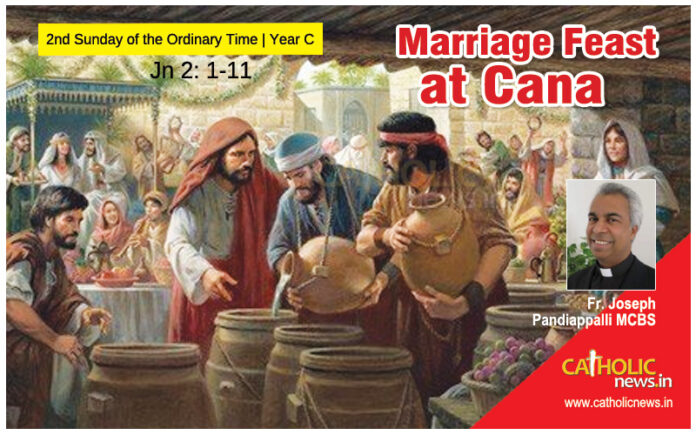
Every time I bless a marriage, I get the impression that the celebration with the relatives and friends after the marriage is very important for the couples. Once I experienced that they had forgotten to bring the ring. Another time the bride came one hour late. In both cases I could feel, how painful it was for the couples and for the organisers.
The wedding is one of the most important celebrations in a person’s life. You want to make this celebration special, unique and unforgettable. So that everything can go smoothly, such as the selection of the location of the wedding and the celebration, the preparation of the list of the guests, the choice of clothing and flowers, the discussion with the priest about the service, the selection of music and jewelry, decoration and table settings, and the menu and much more.
After a long and thorough preparation, for example, if the food were spoiled or the wine tasted like vinegar, it would be very embarrassing for the couple and their parents: especially if, as was the case in the area where Jesus lived and even today in some cultures. A wedding celebration lasted several days in Palestine at that time and many of the guests stayed in the house or sometimes hundreds of guests are invited.
The wine was over at the wedding at Cana. Either the host misjudged the drinking culture of his guests or more guests came than he expected. Jesus turned six hundred liters of water into first-quality wine at once. Without asking how much more was needed or why such an embarrassing situation arose, Jesus, through his first miracle, gave so much wine that at least 1,000 people could drink for two days. There were certainly not a thousand wine drinkers at this celebration, the many children among the guests did not drink any wine and I am of the opinion that the host did not need that much wine, as 600 liters of wine is a very large amount. This miracle of wine gives me the message that Jesus’ generosity has no limits. To deal responsibly with this boundless generosity of God, we must have a certain discipline, especially in today’s times and society, where everything seems to be available.
The story of today’s Gospel is a good example of this. Even though there was plenty of wine available, thanks to Jesus’ miracle, everyone was only supposed to drink as much as they could need. It is possible that when people are given a lot through God’s generosity, they may treat it irresponsibly and get into big problems.
When we look at the various miraculous deeds of Jesus, we experience that the miraculous deeds of Jesus are signs of his divine power, authority and revelation of the glory of God. The same was true of the wine-miracle in Cana. The glory of God was revealed by turning water into wine. In the Eucharist we believe in the transformation of bread and wine into the divine presence in which we experience the glory of God. The miraculous deeds of Jesus are also the revelation of God’s mercy and the mercy of Jesus. As we celebrate the Holy Year this year, we can learn how merciful and loving Jesus was towards his fellow human beings. Healing the sick or giving bread to the hungry were among the main activities of Jesus in which He showed himself to be merciful.
In this wine-miracle of Jesus during the wedding at Cana, he helped the host from an unpleasant situation in an unimaginably generous way. It means that Jesus not only worked miracles in a situation of great catastrophe, such as healing the incurable sick or providing bread to the hungry, but also in everyday occasions and events, such as contributing to the success of a beautiful celebration with a miracle.
As with the wedding at Cana, I wish us a beautiful and dignified Eucharistic celebration today.
The Wedding at Cana is not just a story about wine; it is a profound revelation of God’s love, mercy, and glory. As we reflect on this Gospel, let Trust in Jesus as Mary did, bringing our needs to Him with confidence. May we carry this message into our daily lives, trusting in the generosity of a God who meets us in our joys and challenges, both big and small.
Fr. Joseph Pandiappallil MCBS



